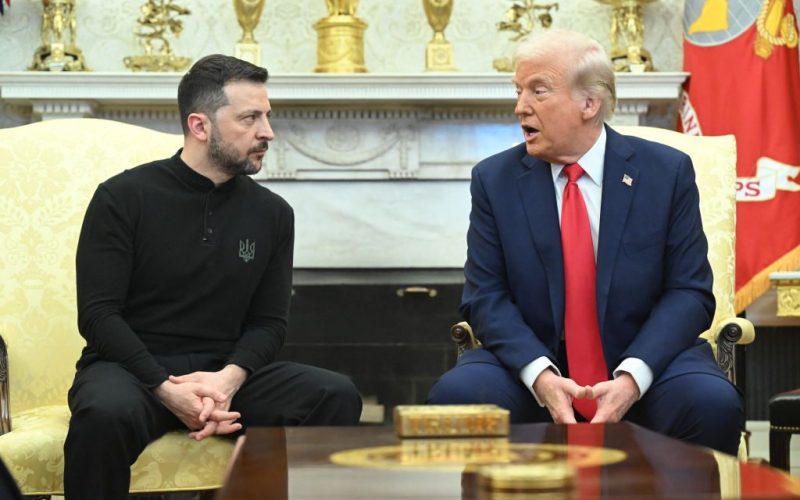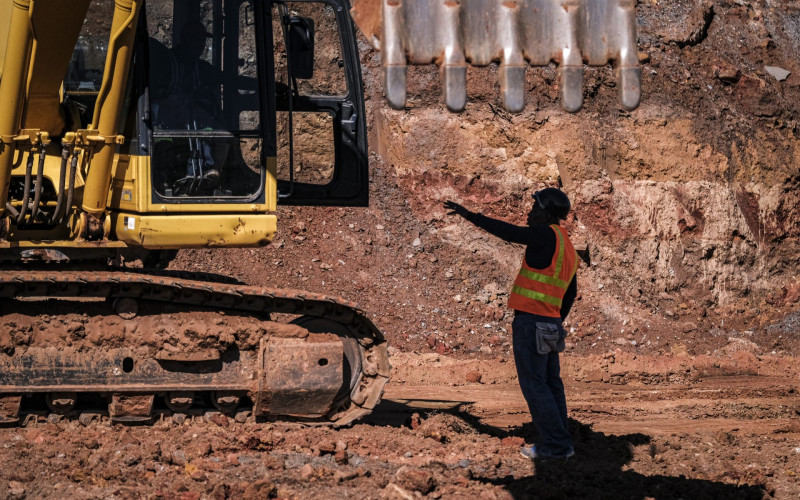Recommendations
- The African Mineral Development Centre (AMDC) should institutionalise futures literacy, foresight and anticipatory governance capabilities in the African mining sector by establishing an ‘African Futures of Mining’ working group.
- Futures literacy, foresight and anticipatory governance should be incorporated as key themes in the annual Africa Forum on Mining and other relevant forums to support African Mining Vision (AMV) implementation and share good practice.
- The AMDC should build partnerships and networks with research and training bodies to support the establishment of futures literacy action laboratories that use collective intelligence-gathering methods to foster AMV awareness, adoption and adherence.
- The AMDC should create an anticipatory governance competency framework for achieving the AMV Action Plan by adopting futures methodologies that raise awareness of changes, explore impact, provide alternative futures, and develop strategies for action towards transforming African futures of mining.
Executive summary
The 10-year review of the African Mining Vision (AMV) is an opportunity to showcase the need for futures literacy, foresight and anticipatory governance. The COVID-19 pandemic accentuates the lack of anticipatory capabilities in African mining to enable early detection of emerging disruptors with significant impacts on mining futures. Institutionalising futures literacy at the African Mineral Development Centre (AMDC) and the broader extractive industry would build capabilities to embrace alternative futures of mining and to re-imagine positive visions of African mining. Empowering the AMV would enable the envisioning of alternative and contextually appropriate African futures of mining that facilitate anticipatory governance cultures within the mining sector. Adopting these policy suggestions would accelerate the pace of AMV domestication and enhance the ability of the AMDC to use the future and transform the AMV implementation trajectory.
Introduction
In the post-normal times of the COVID-19 global pandemic, the African futures of mining finds itself in unchartered and deeply uncertain territory. There is no return to business as usual owing to the traumatic shock of worldwide lockdowns, with devasting effects on the global economy. The extractives industry should see this historic event as an opportunity for novel responses with uniquely African innovations. The guiding signpost to the future of African mining is the AMV, which aims to promote ‘transparent, equitable and optimal exploitation of mineral resources to underpin broad-based sustainable growth and socioeconomic development’.1AU, “Africa Mining Vision: Decisions”, https://au.int/en/documents-9.
The AMV represents a collective re-imagination towards transforming African mining futures. The forward-looking vision seeks to empower policy and regulatory frameworks to maximise the developmental outcomes of mineral resources exploitation on the continent. Chief of the Natural Resources Section at the UN Economic Commission for Africa (UNECA), Dr Kojo Busia, argues that ‘it is the lack of long-term vision and effective policies, which create weak institutions and laws, unfit for transforming the mining sector in Africa’.2Kojo Busia, “The AMDC Is Achieving Success in Demonstrating How the Africa Mining Vision Is a Win-Win Situation”, Mining Review Africa, April 13, 2017, https://www.miningreview.com/interviews/amdc-achieving-success-demonstrating-africa-mining-visions-new-paradigm-linkages-based-mineral-sectors-management-represents-win-win-governments-well-industry/
The statement highlights the deficit in the mining sector’s ability to imagine and develop proactive mining policies. What is lacking is futures thinking and foresight skills that would help to build strong institutions and effective governance frameworks. In fact, the first annual Africa Forum on Mining, hosted by the AU and other institutional partners in Accra, Ghana from 13–15 November 2019, stressed the need for futures-informed approaches that are adaptive and responsive to the AMV implementation action plan.
This policy briefing explores how the AMV and its associated action plan is empowered by the use of futures literacy, foresight and anticipatory governance. In this regard, the role of the AMDC, as the key institution tasked with coordinating and promoting the implementation of the AMV, is also considered.
The value of futures literacy to the AMV
Futurist Jim Dator’s first ‘Law of the Future’ states: ‘[T]he future cannot be predicted because the future does not exist’,3James A Dator, Jim Dator: A Noticer In Time, Selected Work, 1967–2018 (Cham: Springer, 2019), 3–5. therefore humans can only ‘use the future’ by employing the human faculties of imagination and anticipation.4Riel Miller, ed., Transforming the Future: Anticipation in the 21st Century (London: Routledge Taylor & Francis Group, 2018) The capability of building human skills to ‘use the future’ is called futures literacy. Achieving preferable futures of African mining requires the development of futures literacy throughout the African mining industry and governance architecture. Futures literacy is interested in how the future can be imagined; it can enable awareness of the underlying images about African mining and improve the ability of key actors to harness the power of these images about the future. Futures literacy also seeks to enable change agents to more fully consider the diversity of possible futures and the choices required to navigate towards preferred futures.
Futures literacy is a skill for navigating a global environment characterised by volatility, uncertainty, complexity and ambiguity (VUCA world), because it allows for a better understanding of the role that the future plays in seeing and doing.5Riel Miller, “Futures Literacy: A Hybrid Strategic Scenario Method”, Futures 39, no. 4 (2007).The AMV represents an important project of imagination that reveals Africa’s ability to re-imagine futures of mining. For African mining to grow its futures literacy capabilities, it needs to learn how to imagine alternatives of the future that speak to the AMV’s values and principles.
The three main components of studying the future are forecasting, foresight6Foresight is “a systemic, participatory, future-intelligence gathering and medium-to-long term vision building aimed at enabling present-day decisions and mobilizing joint action”. See Ian Miles, Michael Keenan and Jari Kaivo-Oja, Handbook of Knowledge Society Foresight (Manchester: European Foundation for the Improvement of Living and Working Conditions, 2002). and anticipation.7Roberto Poli, Working with the Future: Ideas and Tools to Govern Uncertainty (Milan: Bocconi University Press, 2019).The dominant forward-looking approach in current African mining governance is centred on forecasting. As one of the three main areas of futures studies, forecasting is focused on prediction and includes the use of different types of formal models that provide indications on trends.8Poli, Working with the Future.However, forecasting has two important limitations: it is most useful for short time windows (six months to two years) and it generally assumes that the system in which the industry operates will continue to work according to the current state (the future as linear extrapolation of the present).
In contrast, foresight seeks to understand incoming, novel, unexpected events and changes in the environment over intermediate time windows (three to 30 years), ie, the multiple
ways in which reality might reveal itself. The difference between the two is that ‘in the case of forecasting, the future is constructed as a repetition of patterns from the past, while in the case of foresight, the future also contains authentic innovations, surprising changes and discontinuities’.9Poli, Working with the FutureThe third component of futures studies is anticipation, which seeks to translate models of the future into decisions and action. Futures literacy includes the ability to use multiple futures through imagination (scoping unknown futures) and anticipation (working with unknown futures to create action).
Transformational futures and anticipatory governance in African Mining
Mastering the ability to view uncertainty as a resource, rather than the enemy of planning, is key to transforming the African mining sector. Therefore, adopting the discipline of anticipation in the aftermath of the global COVID-19 pandemic should include the use of foresight methods beyond the conventional limitations of mineral and mining forecasting. Futurist Marius Oosthuizen10Marius Oosthuizen, “Foresight, the Missing Link in Africa’s Mining Value-Chain”, Foresight for Development, http://www.foresightfordevelopment.org/featured/mining.argues that foresight offers three transformational contributions to mining. First, foresight is grounded in systems thinking, which allows for seeing the interconnectivity and systemic nature of not only the parts or the whole but also, importantly, the relations between the parts and the whole. Second, foresight tools such as scenario planning ‘synthesize seemingly unconnected or even divergent drivers of change into coherent forward views’,11Oosthuizen, “Foresight, the Missing Link”enabling the participation of diverse stakeholders affected by mining to co-create shared visions of the future. Foresight provides a forward-looking perspective on industries and links it to cross-scale developmental agendas. Foresight views mining as an ecosystem, interconnected and inextricably linked to many other sectors and communities even in cases where ‘life of mine’ has been reached. Foresight tools help to re-imagine depleted mineral reserves, capital investments and existing infrastructure into creative new use cases, which can transform mining from a sunset to a sunrise industry. Third, foresight has the ‘capacity of using interdisciplinary knowledge of medium-long term changes and impacts of mining and to provide’ 12Oosthuizen, “Foresight, the Missing Link”.insights on preferable futures for mining. These transformational contributions of foresight, if adopted, could strengthen the eight medium- to long-term broad priority areas of AMV implementation and support the seven focus areas of the AMDC workstreams, as outlined by UNECA.13Oliver Maponga, “African Mining Forum: AMV in the Next 10 Years – Strategies to Support Implementation” (African Union Forum on Mining, UNECA, Accra, November 15, 2019).
Futures literacy and foresight tools may have been the missing element in the successful implementation of the AMV in the past 10 years. The future of African mining cannot be predicted, but ‘preferred futures’ can and should be envisioned, implemented, continuously evaluated, revised and re-envisioned. Thus, the primary task of the leadership executing the AMV is to help individuals and groups formulate, implement and re-envision their preferred African mining futures.
How can governments implementing the AMV become capable of perceiving changes in the mining sector before they occur? Anticipatory governance enables the mitigation of risks and takes advantage of opportunities that may arise in the extractive industry. Anticipatory governance is14Jose Ramos, “Anticipatory Governance: A Primer”, Medium, January 14, 2020, https://medium.com/@joseramos_30450/anticipatory-governance-some-startingpointsf16ae2fb6d06
collaborative and participatory processes and systems for exploring, envisioning, direction setting, developing strategy and experimentation for a region. Anticipatory Governance allows a region, whether city or state, to harness the collective intelligence and wisdom of collaborating organizations and citizens, to deal with strategic risks and leverage emerging opportunities for meeting development goals. It is an approach for ‘social navigation’ — the ability for a society to navigate the complex terrain of social change.
The implications of instituted anticipatory governance lead to three critical elements in executive branch functions: foresight fused to policy analysis; networked governance for value-driven management and budgeting; and feedback to monitor and adjust policy relative to initial expectations.15Poli, Working with the Future.
Institutionalising futures literacy within the AMV
A key futures-informed policy solution is to adopt financial, educational and consulting investments in futures literacy, foresight and anticipatory governance methods. Futuresliterate solutions can empower transformational activities in African mining to overcome the domestication dilemma. These activities include the AMDC’s building partnerships and networks with stakeholders engaged in research and training, such as think tanks and the UNESCO Future Literacy project on Imagining Africa’s Futures.16UN Educational, Scientific and Cultural Organization, “Imagining Africa’s Futures”, https://en.unesco.org/imagine-africa-futures.These partnerships could support the creation of futures literacy action laboratories, which in turn could help the mining community to adopt proactive, adaptive and participatory approaches for collective intelligence gathering.
The AMDC is the central institutional mechanism for promoting and supporting the implementation of the AMV. Using African futures of mining in creative, innovative and meaningful ways requires that futures literacy, foresight and anticipatory governance capabilities develop critical components of the AMDC’s coordination, agenda-setting and capacity-building functions. Such capabilities will allow the AMDC, in partnership with private and public sector stakeholders, to strengthen the agility, resilience and adaptive capacity of the sector as it grapples with powerful disruptive trends and events (mechanisation, digitalisation, circular economy, climate change, political upheaval, social unrest, ecological concerns, etc.).
A robust mechanism to ensure pan-African implementation of the AMV is for the AMDC and its institutional partners to incorporate futures literacy, foresight and anticipatory governance themes in the annual Africa Forum on Mining and other relevant forums. Engaging meaningfully with these themes at major mining forums will aid the development of futures methods that support successful AMV implementation. More research and futures methods development should be pioneered to ensure a proactive extractives industry capable of facilitating AMV domestication at regional and country levels, supporting peer learning and providing alignment with broader industry-wide policies.
The establishment of an ‘African Futures of Mining’ working group within the AMDC, drawing on Africa-based experts in futures literacy and extractives governance, could be an important mechanism to develop the institution’s capabilities in terms of coordination, agenda setting and capacity building. The establishment of such a working group is particularly timely, as the AMV enters its second decade of implementation and the AMDC itself undergoes an important process of institutional repositioning and renewal. Over time, the working group could support the development of an anticipatory governance competency framework for achieving the AMV action plan.
Achieving the AMV implementation should also be linked to a strategic communication platform that supports formal associations and co-working agreements. The anticipatory governance competency framework would enable participatory and collective intelligencegathering futures literacy action laboratories that build capabilities to use the future. These might include various futures methods such as foresight visioning exercises; strategic conversations by management about the current use of and assumptions when using the future; environmental and horizon scanning for the detection of wild cards and identification of weak signals; the three horizons methodology to explore systemic patterns, build mature preferred futures, and develop systemic innovations towards visions; backcasting to find the condition that might make it possible to achieve a goal; causal layered analysis to re-frame images of the future and present alternatives; and scenarios that nurture seeds of good African futures of mining (positive mining developments that represent ‘pockets of the future’ in the present).
Looking to the future to enable AMV implementation
The extractive industry has always used the future, either consciously or unconsciously, through processes of imagination and anticipation. This policy briefing calls for a deliberate and conscious engagement of the African mining sector with futures capabilities to reinvigorate the forward-looking agenda outlined in the AMV. Futures literacy and anticipatory governance allow stakeholders to uncover existing anticipatory assumptions, help to reframe and invent new anticipatory assumptions, and build capabilities to engage with systemic change and innovations in the mining sector. The use of transformational futures also invites the mining community to meaningfully contribute to and influence formal decision-making processes in the AMV’s implementation and continually re-imagine bold and positive African futures of mining.
Acknowledgement
SAIIA gratefully acknowledges the support of Konrad Adenauer Stiftung (KAS).







